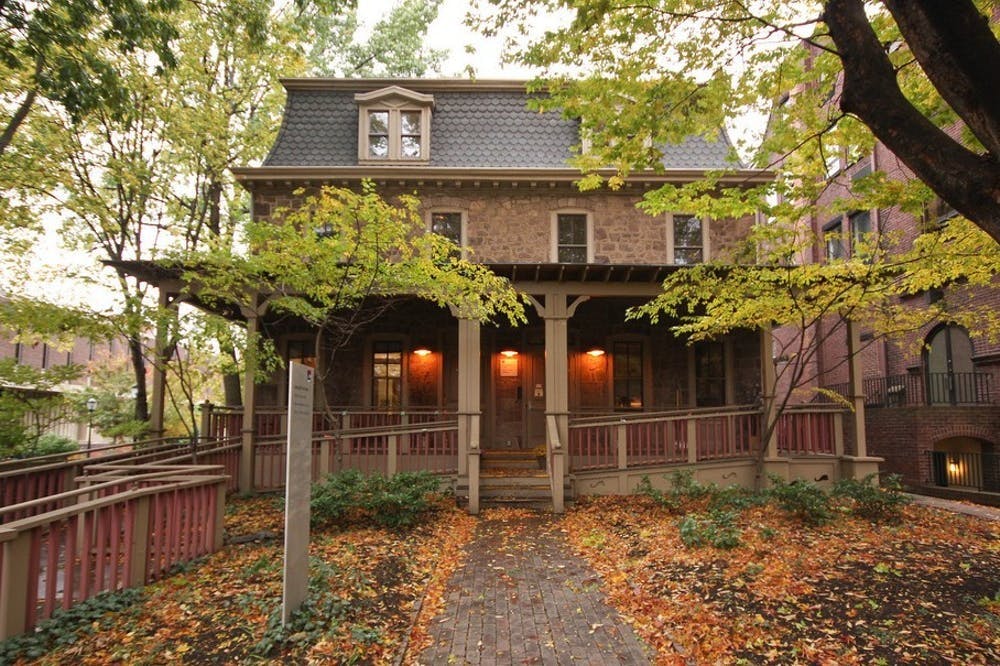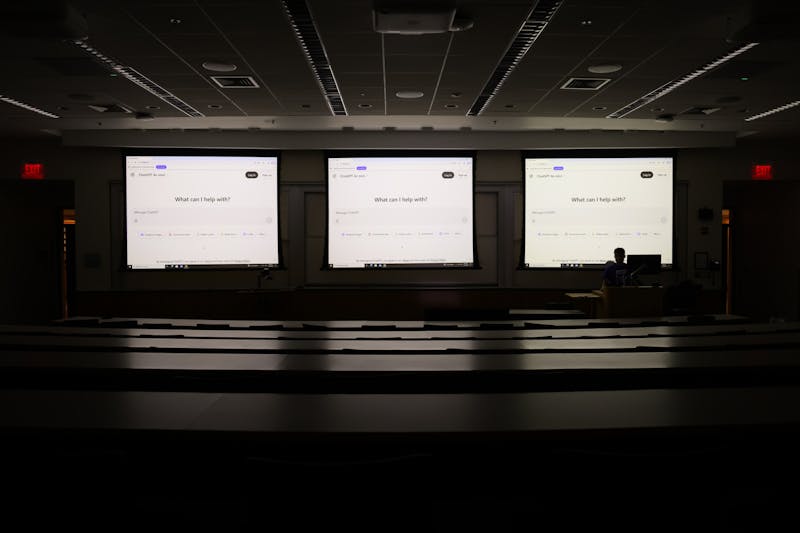
The Penn Association for Gender Equity will host PennGenEq beginning in the fall 2021 semester.
Credit: File PhotoThe Penn Association for Gender Equity, a student organization on campus that aims to promote gender equity and social justice, will host a new first-year pre-orientation program called PennGenEq beginning in the fall 2021 semester.
After four years of developing the program under the leadership of previous chairs, PAGE chair Samantha Pancoe said that PAGE is set to host PennGenEq in efforts to give new students a space to explore the role of gender and identity in their lives and form connections with students, organizations, and on-campus centers — such as the LGBT Center, Penn's Women's Center, and PennNonCis — prior to move-in. Pancoe said the program is currently planning to be in person, but that it will be conducted on a virtual platform if the University makes all pre-orientation events virtual due to COVID-19.
“We hope to provide a community for incoming students to learn and socialize alongside students with similar backgrounds to make their first year a little easier,” Pancoe said. “We also hope that our program will provide students with avenues to get involved in advocacy and action both on campus and in Philadelphia more broadly.”
The curriculum of the program includes discussions on the history of feminism, identity and intersectionality, binaries and labels, a critical history of feminism, and discussions about privilege.
Pancoe said that one way the program will help first years become involved in advocacy is through allowing centers and groups on campus such as Penn Anti-Violence Educators, the Women’s Center, which houses PAGE, the LGBT Center, and the Gender, Sexuality and Women’s Studies Program to give presentations to participating students.
After listening to these presentations, Serena Martinez, one of two First Year Coordinators at PAGE, said that students will be given the time to critically self-reflect, be vulnerable with others in the program, and decompress with each other.
Martinez, who has played a substantial role in developing the program, said that although PennGenEq will be like other orientation programs in that it will allow first years to get acclimated to campus, find friends prior to move-in, and encourage discussion on important topics, the program will still be unique.
“What PennGenEq does that other programs do not is create a space exclusively for students of minority genders to discuss identity in their lives and in their futures at Penn,” Martinez said.
Director of the LGBT center Erin Cross and Director of Penn’s Women’s Center Sherisse Laud-Hammond agreed that the inclusive nature of the program will enable a safe space for students to discuss identities and gender equity.
Prior to launching the program, Cross and Hammond said that PAGE members attended many meetings with Vice Provost for University Life Mamta Motwani Accapadi to develop documents that ensure the program has the right learning objectives and outcomes for students.
"It has been deeply inspiring to work with PAGE leaders to support their vision of a student experience centered around building intentional community for students from marginalized gender identities," Accapadi wrote in an email to The Daily Pennsylvanian on May 4.
Martinez said that in addition to wishing that there was a program like this when they were a first year, they found that the lack of open conversations about gender and identity at the University inspired them to create PennGenEq.
“Gender and identity affect all of us, whether we study it academically, cross-culturally amongst other fields, or rarely if at all in school,” they said. “I don’t believe it is ever too early to discuss and think critically about gender, especially entering a predominantly white institution with frats lining campus and rates of sexual violence statistically heightened for minority groups.”
For Pancoe, it was the success of PAGE’s pilot first-year retreat in 2019 and its first-year fellowship that led to launch PennGenEq.
PAGE has been running a first-year fellows program every fall, Martinez said, which invites around 20 students to talk about gender equity and the intersection of gender with other identities. In order to further connect with first years, PAGE held a one-day retreat for first years in 2019 with grants provided by GSWS in the hopes of it leading to a pre-orientation program the following year, which ultimately did not happen due to COVID-19.
“It has been really great both from a learning perspective and a community building perspective [to have these first-year programs], so we are hoping to sort of get that energy going a little bit earlier through a pre-orientation program,” Pancoe said.
Martinez said they are confident that PennGenEq will continue on for many years, adding that they are open to suggestions about improving the program for the future.
“The program is not fixed and will continue to evolve based on participant feedback, so if you are applying and have topics you want covered, we welcome those suggestions,” Martinez said.
The Daily Pennsylvanian is an independent, student-run newspaper. Please consider making a donation to support the coverage that shapes the University. Your generosity ensures a future of strong journalism at Penn.
Donate






